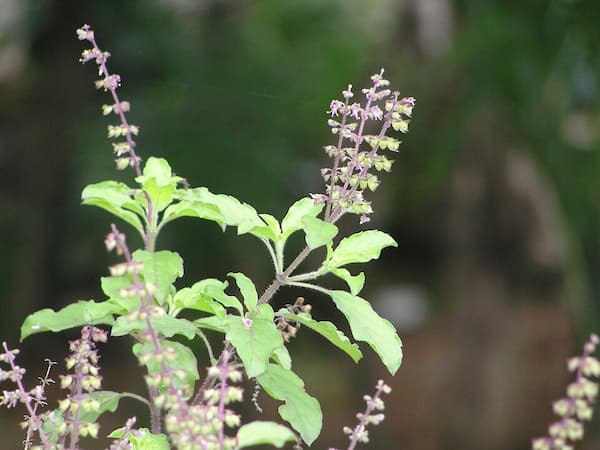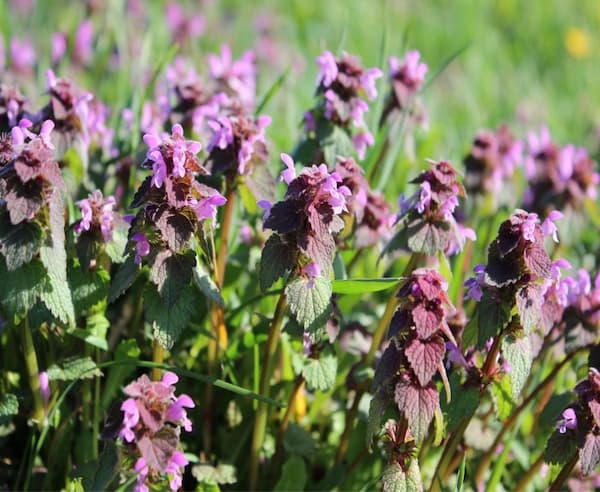Elderberry Sage Tea
With Raspberry and Blackberry Leaves

Many of you asked for herbal teas to help ease the stress of winter on our bodies and help combat the symptoms of colds and flu. So I’ve put together another tea that is excellent for dealing with those winter colds and flu, and it’s great tasting too!
Besides tasting delicious, what else is it good for???

Main Ingredient: ELDERBERRIES!!
Elderberry Benefits
Used for its antioxidant activity to lower cholesterol, improve vision, boost the immune system, improve heart health and for coughs, colds, flu, bacterial and viral infections and tonsillitis. Elderberry juice was used to treat a flu epidemic in Panama in 1995.
Elderberries (Sambucus) have been a folk remedy for centuries in North America, Europe, Western Asia, and North Africa; hence the medicinal benefits of elderberries are being investigated and rediscovered. Elderberry is used for its antioxidant activity, to lower cholesterol, to improve vision, to boost the immune system, to improve heart health and for coughs, colds, flu, bacterial and viral infections and tonsillitis. Bioflavonoids and other proteins in the juice destroy the ability of cold and flu viruses to infect a cell. People with the flu who took elderberry juice reported less severe symptoms and felt better much faster than those who did not.
Beneficial components in Elderberries
Elderberries contain organic pigments, tannin, amino acids, carotenoids, flavonoids, sugar, rutin, viburnic acid, vitamin A and B and a large amount of vitamin C. They are also mildly laxative, a diuretic, and diaphoretic. Flavonoids, including quercetin, are believed to account for the therapeutic actions of the elderberry flowers and berries. According to test tube studies these flavonoids include anthocyanins that are powerful antioxidants and protect cells against damage.
Health Benefits of Elderberries
Elderberries were listed in the CRC Handbook of Medicinal Herbs as early as 1985 and are listed in the 2000 Mosby’s Nursing Drug reference for colds, flu, yeast infections, nasal and chest congestion, and hay fever. In Israel, Hadassah’s Oncology Lab has determined that elderberry stimulates the body’s immune system, and they are treating cancer and AIDS patients with it. The wide range of medical benefits (from flu and colds to debilitating asthma, diabetes, and weight loss) is probably due to the enhancement of each individual’s immune system.
At the Bundesforschungsanstalt research center for food in Karlsruhe, Germany, scientists conducting studies on Elderberry showed that elderberry anthocyanins enhance immune function by boosting the production of cytokines. These unique proteins act as messengers in the immune system to help regulate immune response, thus helping to defend the body against disease. Further research indicated that anthocyanins found in elderberries possess appreciably more antioxidant capacity than either vitamin E or vitamin C.
Studies at Austria’s University of Graz found that elderberry extract reduces oxidation of low-density lipoprotein (LDL) cholesterol. Oxidation of LDL cholesterol is implicated in atherogenesis, thus contributing to cardiovascular disease.
Elderflowers are also used for their health benefits.
Are Elderberries poisonous?
Most species of Sambucus berries are edible when picked ripe and then cooked. Both the skin and pulp can be eaten. However, it is important to note that most uncooked berries and other parts of plants from this genus are poisonous. Sambucus nigra is the variety of Elderberry that is most often used for health benefits as it is the only variety considered to be non-toxic even when not cooked, but it is still recommended to cook the berries at least a little to enhance their taste and digestibility.

Secondary Ingredient: SAGE!!
Sage Benefits
Sage has one of the longest histories of use of any culinary or medicinal herb. Ancient Egyptians used it as a fertility drug (Bown, 1995). In the first century C.E. Greek physician Dioscorides reported that the aqueous decoction of sage stopped bleeding of wounds and cleaned ulcers and sores. He also recommended sage juice in warm water for hoarseness and coughs. It was used by herbalists externally to treat sprains, swelling, ulcers, and bleeding.
Internally, a tea made from sage leaves has had a long history of use to treat sore throats and coughs, often by gargling. It was also used by herbalists for rheumatism, excessive menstrual bleeding, and to dry up a mother’s milk when nursing was stopped. It was particularly noted for strengthening the nervous system, improving memory, and sharpening the senses. Sage was officially listed in the United States Pharmacopoeia from 1840 to 1900.
Health benefits of Sage Leaf
Sage Tea or infusion of Sage is a valuable agent in the delirium of fevers and in the nervous excitement frequently accompanying brain and nervous diseases. It has a considerable reputation as a remedy, given in small and often-repeated doses. It is highly serviceable as a stimulant tonic in debility of the stomach and nervous system and weakness of digestion generally. It was for this reason that the Chinese valued it, giving it preference to their own tea. It is considered a useful medicine in typhoid fever and beneficial in biliousness and liver complaints, kidney troubles, hemorrhage from the lungs or stomach, for colds in the head as well as sore throat, quinsy, measles, for pains in the joints, lethargy and palsy. It has been used to check excessive perspiration in phthisis cases and is useful as an emmenagogue. A cup of the strong infusion will be found good to relieve nervous headache.
Anti-inflammatory
In Germany, sage tea is also applied topically as a rinse or gargled for inflammations. Sage extract, tincture, and essential oil are all used in prepared medicines for mouth and throat and as gastrointestinal remedies in fluid (e.g., juice) and solid dosage forms (Leung and Foster, 1996; Wichtl and Bisset, 1994).
Rosmarinic acid contributes to the herb’s anti-inflammatory activity. The German Commission E approved internal use for mild gastrointestinal upset and excessive sweating as well as for external use in conditions of inflamed mucous membranes of the mouth and throat.
Antiseptic and antibacterial
Sage has been used effectively for throat infections, dental abscesses, infected gums and mouth ulcers. The phenolic acids in sage are particularly potent against Staphylococcus aureus. In vitro, sage oil has been shown to be effective against both Escherichia coli and Salmonella species, and against filamentous fungi and yeasts such as Candida albicans. Sage also has an astringent action due to its relatively high tannin content and can be used in the treatment of infantile diarrhea.
Its antiseptic action is of value where there is intestinal infection.
Reduces muscle tension
Sage has an anti-spasmodic action which reduces tension in smooth muscle, and it can be used in a steam inhalation for asthma attacks. It is an excellent remedy for helping to remove mucous congestion in the airways and for checking or preventing secondary infection.
Relieves indigestion
It may be taken as a carminative to reduce griping and other symptoms of indigestion and is also of value in the treatment of dysmenorrhea. Its bitter component stimulates upper digestive secretions, intestinal mobility, bile flow, and pancreatic function, while the volatile oil has a carminative and stimulating effect on the digestion.
Relaxant
There also seems to be a more general relaxant effect, so that the plant is suitable in the treatment of nervousness, excitability and dizziness.
Reduces menopausal symptoms
It is well documented that sage leaf helps to reduce menopausal sweats. In one study, excessive sweating was induced by pilocarpine. The sweating was reduced when participants were given an aqueous extract of fresh sage leaf. In a further study 40 patients were given dried aqueous extract of fresh sage (440mg) and 40 were given infusion of sage (4.5g) herb daily. Both groups of patients experienced a reduction in sweating.
Sage has a strong anti-hydrotic action and was a traditional treatment for night sweats in tuberculosis sufferers. Its estrogenic effects may be used to treat some cases of dysmenorrhea and menstrual irregularity or amenorrhea and can reduce breast-milk production.
Its use as a general tonic, for fatigue, nervous exhaustion, immune system depletion, and poor memory and concentration, at any age has also been noted. Sage was prescribed as tea (aqueous infusion) by 37 practitioners, alcoholic tincture by 30, fresh tincture by 14, alcoholic fluidextract by 2, fresh juice by 2, and fresh leaf by 1 (Beatty and Denham, 1998).
Improve memory
It is thought that sage is similar to Rosemary in its ability to improve brain function and memory. In a study involving 20 healthy volunteers, sage oil caused indicated improvements in word recall and speed of attention. Meanwhile the activity of sage and its constituents have been investigated in the search for new drugs for the treatment of Alzheimer’s disease with promising results.

Supporting Herbs: RASPBERRY & BLACKBERRY LEAVES!!
Health Benefits:
There are a multitude of benefits to Red Raspberry Leaf tea.
- The tea leaves are naturally high in magnesium, potassium, iron, and b vitamins.
- It’s helpful for nausea and leg cramps (which may improve sleep).
- It has astringent properties, which make it soothing, for your insides and your “outsides”.
- Anyone can use it for sunburn, eczema, rashes, and other skin irritations and can improve gum disease.
- It is high in Vitamins B, C, and E, which are helpful for their immune properties and for energy.
- It is a great detoxifier, which is beneficial to men and women.
In addition, Men are exposed to hormones every day in the foods we consume that are laden with estrogen in the form of soy (even oil sprays have soy in the propellant). Regular use helps detoxify these hormones and may improve testosterone levels. The best part is, it’s entirely safe for use and is also safe for children.
Blackberry Leaf benefits
They Can Fight Bacteria
A lot of herbs and other natural compounds have antibacterial properties, from spearmint oil to thyme, which contains a substance used in mouthwash. However, many of these can only kill bacteria in direct contact and when using concentrated extractions of key compounds. In other words, they won’t benefit you when consumed as a tea unless you make it super strong and swish it around your mouth.
It’s a different story with blackberry leaf tea, though, as antimicrobial testing has suggested it can fight against H. pylori bacteria and may therefore be beneficial when consumed as opposed to simply used topically.
It is Loaded with Antioxidants
Blackberry leaf tea contains a wealth of healthy antioxidants that could improve overall health and wellbeing. Antioxidants in their natural form can significantly reduce the risk of chronic diseases like cancer, and while blackberry leaf hasn’t been as extensively studied as other herbs, the polyphenols it contains have been. This includes kaempferol, which has been at the heart of many interesting cancer studies, including an 8-year study that discovered it could reduce pancreatic cancer risk in smokers when consumed with two other antioxidants, and gallic acid.
It Could Protect Against Heart Disease
Antioxidants can protect against more than cancer and may also reduce the risk of heart disease. That doesn’t mean that they can negate the damage done by an unhealthy lifestyle (a cup of tea isn’t going to offset a pack of cigarettes), but as part of a healthy lifestyle, they can be very beneficial.
Tannins may play a significant role in reducing this risk. These compounds are abundant in red wine and black tea, but they can also be found in high doses in blackberry leaf tea, suggesting it could provide some of the same benefits.
Other Health Benefits
Antioxidants can work wonders for your health. In addition to some of the benefits discussed above, they may also reduce the risk of neurodegenerative diseases, skin disorders, and digestive issues, but there isn’t a great deal of research to back up these claims. As far as micronutrients go, some claims state these leaves are loaded with all kinds of healthy vitamins, but it seems these claims are confusing the blackberry leaf with the blackberry fruit.
Hummingbird Creations also offers the following teas for the cold and flu season:
We also offer individual herbal extracts of Elderberry, Sage and Raspberry for those individuals who are not tea drinkers. Buy extracts individually and blend your own ‘tea’ blends!!








